Introduction
Detox teas, diets, and rituals… are they all what they’re cracked up to be?
Find out on this week’s show!
This week on The Goodness Lover Podcast we spoke with Dr. Peter Bongiorno - a naturopathic physician and author.
Watch the Interview:
Dr. Bongiorno revealed:
🔌 How the body is wired to fix itself
🌱 How nutrition, autophagy, and supplements are able to support liver detoxification
🥺 Why chronic inflammation can lead to severe health conditions
⚠️ The best ways to support your liver in detoxification
And much more!
Additional Resources
To connect with Dr. Peter Bongiorno and discover more of his work, you can find him on Instagram and Facebook. You can also visit his website here.Transcript
Sarah: Hello, and welcome back to the Goodness Lover show. Today, we're joined by a naturopathic doctor and good friend, Dr. Peter Bongiorno. Who's here to talk to us all about detoxification, how to do it, how to do it correctly, what is the misinformation out there? Two, the liver, the incredible, fascinating role it plays in our body. And three, practical things you can start doing tonight to help restore your body, get your detoxification processes working and love your liver. Let's get into it.
Matt: Well, Dr. Peter Bongiorno, our friend and mental health extraordinaire and natural physician that we love to talk to is on the show again. Thank you for joining us.
Dr. Peter Bongiorno: Oh, thank you for having me here.
Matt: So we were discussing before the show that we want to learn all about detox and we were talking about liver. And we're like, "Which path should we go down?" And you were like, "Liver is interesting, let's go down there." So I need to learn more about the liver and detox. And there's a lot said about it in the online blogosphere, which I'm assuming could be either confusing or some maybe downright pseudo-scientific. So when a patient comes into your practice and wants to learn more about how do they detoxify themselves and maybe how they detoxify the liver, where do you start with them?
Dr. Peter Bongiorno: Sure. Well, when I first think about detox, it's helping the body get rid of stuff that shouldn't be there, right? And unfortunately, in the world we live in, the very polluted world we live in, there are so many chemicals now that enter our bodies every day. In fact, now there's studies that show that there's really no parts of the world you can go to that you don't find abnormal and toxic chemicals. Even in the mountains of the Himalayas and in the Antarctic under ice sheets and all these places, now we're finding these things. And we're finding over 200 different chemicals in cord blood from placenta from babies that were just born. So we're seeing these things everywhere. And so there is good reason to want to help your body clean out and do what it is naturally able to do. That's the reason I think to do it, because our bodies, unfortunately, aren't great at dealing with these chemicals and storing them. So doing the best we can to number one, not allow them in and then number two, to help usher them out is a great idea.
Matt: Cool. Whenever we have a conversation around toxic chemicals and things like that, it's always super depressing. And people are like, "Well, what..." They either feel overwhelmed and don't do anything about it. And so they're thinking, "Okay, what do I do first? I'm going to book a sauna session and that's what I'm going to do." Is that where you would start if you're wanting to detoxify the body? Would you start saunaing? Would you start with a lemon tea or where do you begin?
Dr. Peter Bongiorno: Sure. Yeah. Well, I mean the first step is to try to recognize for you where the incoming is, right? Where is it coming in from? I was very impressed with COVID-19, what they showed is that the places where pollution is the highest, there's much higher rates of hospitalization and greater sickness from COVID. And that makes sense. It affects the lungs. It creates a lot of inflammation. I guess, if there's a lot of ongoing pollution and things, the cilia in the lungs, which helps kind of usher things out, are probably aren't working very well. Plus, there's more inflammation already. And so we want to think about whatever the condition is that we might have to deal with, or whether we just want to be healthy. We really want to think about, "Well, what's the incoming for us?"
The first one is air. What do we do about air if you don't want to move? Oh, you look at your environment and you see, well, what can I do to clean up the air in my environment? Are there a lot of things that off-gas? Am I buying new furniture all the time? Am I buying new clothing that off-gases? Can I replace some of those things with organic wools and organic cottons? Is anyone smoking around me? Is that something I can change? So looking around to find out for you what the sources of pollution are. One of the things I recommend to many of my patients is getting a very good quality air filter for your home, and maybe getting an air filter in your bedroom. If you can't get an air filter for every room in your home, maybe starting with at least your bedroom. So the area where you do your heaviest breathing, and you're there for one-third of your life, at least that air is pristine.
And one thing about the body that we know, whether it's with foods or pollution or any other incoming toxins, when you give your body a moment without the toxin, that's when it can try to release what it needs to release. There's an analogy and I don't love military analogies, but one analogy is if you're bombing a city, the people in the city will hide. They'll go underground, they'll go into bunkers and they'll shut the lights and they wait. And then when the bombing is over, people come out. And when they know it's over, then they start cleaning up and getting rid of stuff, right? But you can't get rid of stuff while you're actively being bombed, you have to wait. And the body's exactly the same way.
So whether it's too much food or the wrong kinds of food, or a lot of toxins, the body needs a break from it so it can do what it knows how to do. In a process called autophagy, where it gets rid of what it needs to get rid of. So looking at the air, cleaning up the air. Of course, looking at our foods. That's a huge source of toxicity, whether it's plastics in there, whether it's dyes, chemicals, all the things that could be there, hormones, antibiotics, all of these different things.
So looking at our foods and trying to clean that up as much... Certainly, our water and getting very good quality filtration for our water and drinking the cleanest water we can is also a good idea. And then checking into things like metals as well. Are there sources of metals in... And I remember when I was a kid, I used to love playing with mercury thermometers, because that was fun, right? The little balls. So finding out, is there a mercury burden in the person's body? So that's the first step, finding out where is the incoming and then starting to make changes based on that.
Sarah: Okay, great. Some great tips there and great things to think about. And I agree, that when the first graphs and charts came out about air quality and COVID and COVID negative reactions, that was so insightful. And I think as humanity, we became even more acutely aware of how important all of this stuff is. So thank you for outlining some of the potential areas to look at, but I would love to dive in to chats about the liver at this point. How does the liver fit into it all? I'm studying nutrition at the moment. And I feel like when I'm reading about the liver, I'm just like, the liver is such an unsung hero of the body. And it's just in there, just turning this into that and that into this. And just it's involved in so many different processes. And I'm just like why are we all just paying homage to the liver every day. Anyway, so-
Dr. Peter Bongiorno: Yeah. It's true. It's true.
Sarah: What's the deal with the liver? How does it fit in and how can we support our livers?
Dr. Peter Bongiorno: When I was in naturopathic school, so 20 something years ago, there was a joke. It was if you don't know what to do, treat the liver. Start working on the liver. Because the liver does so many things that helps us. It's really incredible. And when you think about the liver, just as a little side note, the liver is the only organ you can cut out and if you leave a little piece, it'll grow back. There's no other body part that will do that, except the liver. So kind of a testament to how important it is or how similar it is to a starfish, I guess. But yeah, so it's pretty amazing. So the liver, in terms of putting it in context with detox, the liver is certainly a part of detox, but there's a number of other body parts that are part of it too.
The skin is probably our largest organ of detoxification. The kidneys certainly play a strong role in detoxification. The colon and the rest of the intestines certainly play a part of it. And the liver is a part of that. When I think about the liver, the first thing I think about is the intestines and making sure people are moving their bowels, right? Because the liver can't do anything if the bowels aren't moving. So when someone's constipated, that's the number one thing to work on in terms of detox. In fact, it's better not even to give them anything that helps them detox, because you don't want to encourage the liver to try to dump more stuff into the intestines. Because then it just gets reabsorbed into the bloodstream and we end up with more toxicity, right?
So the first step is making sure people are moving their bowels really well every day, before thinking about moving on to detox. And you mentioned saunas before. A sauna can be very useful because when you open up your pores and you sweat, that's another way to kind of get rid of toxins. In fact, there are studies that show when people eat enough fiber and when they sweat more, that people who need dialysis typically need less dialysis. And the reason is, is because you can get stuff out, nitrogenous waste out through your skin. You can get wastes out through your pooping. So, that's the less burden on the kidneys.
In fact, there's a couple of studies about certain types of probiotics, which can be useful to help the intestines also do some of the detoxification that the kidneys might have to do. And that can also lower the burden on the kidneys for patients with dialysis. So it just tells us that these things do work. There is some pseudoscience in it and we talk about "detoxification." And I think it means many different things to different people. But if you look at the studies, there's a number of studies about using certain things and how it can help lower burden on the kidneys, which I think is really fascinating and is a tribute to how detoxification can work.
So yes, I think about that. I also think about what we're eating, right? Because there's a system, whereby the intestines have all of these vessels attached to them. And this system of the vessels is called the hepatic portal system, hepatic refers to the liver. And so all the vessels around the intestines go directly to the liver. In fact, they don't go anywhere else. When you absorb your nutrients in your food, it all goes to the liver first, before it goes anywhere else in the body. And that's important because the liver's job is to see what's coming in and to say, "Okay, so this is what's coming in. This is what the balance in the body is going to be. This is how we're going to metabolize some hormones."
The liver also has these master immune cells called Kupffer cells. And Kupffer cells will travel through the bloodstream and go to places like the brain and activate other immune cells called microglia and create more inflammation and go to other body parts like the joints and create inflammation and raise inflammatory markers and things like that. And what you eat is going to play a very strong role in what signals the liver sends to other parts of the body. So not even just for detoxification, but also for inflammation in the body, the liver is a very master controller of that.
Matt: Interesting.
Dr. Peter Bongiorno: So when I think about detoxification, the first thing I think about is, okay, are we drinking enough water? Are we pooping? And then what are we taking in that's going through the liver? Because let's say you have... I worked with a woman today who had past breast cancer and now she has uterine cancer, all very estrogen driven. And one of the things I'm thinking about, "Well, what's going on with her liver that she can't process these estrogens in such a way that they're not so aggressive?" Because we did some testing on her, we found she had very aggressive estrogens.
And so now we're working on liver. We're working on fiber. We're working on improving her liver function because we want her liver to do that job, to break those down, get them into the intestines, then get them out of the body. So I think that's a key too. If I had to pick besides working on constipation, drinking enough water, food, the next thing is sleep right? Because sleep is when your body powers down and then when your body powers down, it could start working on cleaning things up. So if people aren't sleeping enough, the liver isn't going to have the time to do what it needs to do, to actually get rid of what it needs to get rid of, fix what needs to fix, rebalance what needs to rebalance.
Matt: Interesting. I'm just curious if there's going to be a connection with this, that we know that say non-alcoholic fatty liver disease is on the rise. And I've seen some interesting analysis as to why that is. Is there a connection between toxicity and that?
Dr. Peter Bongiorno: It's a great question. I think there's a couple of reasons why. I think toxicity is part of it because the liver has a very strong burden of toxicity. And like I said, the liver has a very strong activation of immune system cells. And in the liver, when the immune system is activated chronically, it basically starts to... the liver cells start to break down and a lot of enzymes get released. And that's when we see liver enzymes go up and that can be a sign of non-alcoholic fatty liver disease. And years ago, you would see this mostly in people who just drank too much because it was so heavy on the liver. When the liver breaks down alcohol, it breaks it down to these formaldehyde type of products. And it's very toxic for the liver, so you saw a lot of these liver cells starting to break open and release these enzymes.
But I also think besides toxicity, a lot of it has to do with the foods we're eating, especially overeating sugars and raising our insulin, because insulin will also help pack a lot of fat in the liver. And fat tissue, adipose tissue in the liver will also make it much more vulnerable to non-alcoholic fatty liver disease too. And when you do ultrasounds on patients, you'll see they'll have these fatty livers. And not just people who are obese, but people who are thin, but aren't really eating balanced. So one way to not eat balanced is to drink too much alcohol. But even if you don't drink alcohol, just having a lot of carbs, a lot of sugar, not a lot of fiber, that sort of thing will also over time increase the likelihood of getting that non-alcoholic fatty liver disease.
Matt: Is there a way to work out if you have that? Is there some common signs that people may be unaware of, that they actually have that without getting a proper diagnosis?
Dr. Peter Bongiorno: Right. Well, some people I see will have that typical insulin... like people who have high insulin will typically have more of a kind of like an insulin abdomen, where you see their stomach kind of come out, almost out of proportion to the rest of their body. Even if have a little more fat tissue on them, you kind of see that stomach bulge, which is very typical of a higher insulin picture. So I see that in a number of patients. As far as symptoms go, they'll tell me sometimes, "Oh, I used to be able to drink alcohol. And boy, I just can't drink it anymore. I can't clear it. I felt drunk for a long time."
Or same thing with alcohol or they'll tell me perfumes bother me or they used to take nonsteroidal anti-inflammatories, acetaminophen and now that really bothers them. They can't take that anymore. And those are just all signs that the liver just isn't processing the way it used to. I do see that in a number of patients. In Chinese medicine, you'll also see sometimes people will have more irritableness or anger. In Chinese medicine, every organ has an association with an emotion and the livers is with anger. So they would say, "Yeah, when there's liver issues, you're going to see more anger and irritableness and just like fluctuation of kind of significant emotion."
Matt: Interesting. So do you have a specific protocol that you walk through with patients to deal with that?
Dr. Peter Bongiorno: With non-alcoholic fatty liver disease?
Matt: Mm-hmm (affirmative).
Dr. Peter Bongiorno: Yeah. So, I mean, it kind of goes back to what we talked about, certainly working on sleep and constipation and water is going to be very important, so all of those basics. Exercise is really key because you want to help the body become less insulin resistant. So when you build muscle, insulin levels will naturally go down. And when insulin levels go down, there's going to be a lot less packing of fat. And if you get insulin levels nice and low and you exercise, then what happens is you'll start breaking down fat. Because the body doesn't have too many great ways to break down fat. We're all designed for scarcity. We're designed to be in the jungle and living with very little food and having to do a lot of walking to go get it or moving to go get it.
So we have all these great methods of building fat in our body because our bodies just crave food and want to pack fat because that's how you got through the winter when there was scarcity. Unfortunately, all those mechanisms don't work for us today. They kind of work against us. So kind of putting people back, as much as we can, to the point where they're moving a lot more and they're eating a lot less, is going to help lower insulin, build their muscle and start to clean out the liver. One thing that's true about the liver is unless... There's a couple of stages of liver problems. One stage is called cirrhosis of the liver and that's when it becomes... I'm sorry, that's when it starts to get more inflamed and the liver cells start to change.
And then the final step is fibrosis. So there's inflammation there and the fatty liver starts, there's cirrhosis, and then there's fibrosis. Fibrosis is when it becomes like cardboard. And it's much harder to do anything once they make those changes, because it's kind of like dead cells. But the inflammatory part and the cirrhotic part, there's still a lot of leeway and there's still so much we can do to lower that inflammation to get the cells to start to heal themselves and to clean up and to create new, more healthy cells. So with non-alcoholic fatty liver disease, that's the idea. We want to get going. We want to start reversing that fat deposition and actually help the body start to break the fat down. So lowering sugar, lowering carbs, building muscle is an important part of that.
And then supporting the liver with certain... There's really some wonderful nutrients and supplements and things that can do that. There was a fellow a number of years ago named Berkson. And he was charged with these hepatitis C patients that they considered unable to cure at that point and I think he was looking after them. And I don't know the story of how it happened, but he stumbled on this idea that he gave them milk thistle, alpha lipoic acid and selenium. So alpha lipoic acid is a supplement that's very good for balancing blood sugar. It's also a good antioxidant. Milk thistle is traditionally very, very well known to support the liver and to help it do the job that needs to do. And then selenium is a very potent antioxidant, right? Which now, even for COVID, is very good for... Levels of selenium is very protective, even for COVID.
And what he found was these patients, and it was only a couple of people, not only did they not die, but they actually did very well on this protocol. And then he started studying this idea of, "Oh okay, if I give patients these things, does their viral load of hepatitis go down?" And it does. And it certainly does. And in the years before they came out with HARVONI and these drugs that cure hepatitis, I had seen that even in my own patients who had chronic hepatitis and couldn't take some of the drugs, like ribavirin that they use to knock... antiviral drugs that they used to knock down Hep C. A lot of those drugs are very, very harsh and many people couldn't take them. And I remember seeing earlier in my practice how these things really did work to help lower viral load and keep people healthy. It didn't cure it, but they were much healthier. Now, I don't see those patients because they do have a medication that actually does cure it at a very high rate.
Matt: Awesome.
Sarah: Wow.
Matt: Yeah. Also, what you were just saying there just reminded me of... What can life be like if you start this detox journey? Because a lot of people might be overwhelmed or they don't know if they want to take action. And we're all about taking action on the Goodness Lover podcast. So what have you seen in your practice when people start doing these protocols, start doing these things? How much better can it make them or at least feel?
Dr. Peter Bongiorno: Yeah. Well, I mean, it lowers inflammation in the body, it balances blood sugar. It does make them feel better. I mean, this kind of protocol isn't just good for non-alcoholic fatty liver steatosis, but it's good for really a lot of inflammatory issues. Because basically, what are we doing? We're getting people sleeping, moving their bodies, drinking water, pooping every day, eating an anti-inflammatory low sugar... I mean, that's the good recipe for almost any condition you want to treat, right? When you give the body what it needs to heal itself, it knows what to do. And even if we don't know exactly why a patient got to the place they did and why they're out of balance, one thing I do know is when you use those types of recommendations, then the body has what it needs to fix itself. Even if I don't know why it's broken, I do know the body knows how to fix it.
Matt: Awesome.
Sarah: I love that. I would love to spend a little bit more time diving into what the liver does. You mentioned before that it's the main recipient of all the nutrients that we eat and it processes it from there, but what else does the liver do in our bodies? Why is it that our body prioritizes rebuilding a liver of all things? Why is it so crucial?
Dr. Peter Bongiorno: Yeah. It's like I said, besides it taking in all the stuff we eat, nutrients and otherwise and checking it out and filtering it. It also, it's a center of inflammatory response. So it helps make the decision of whether other parts of the body are going to end up being inflamed by what we're taking in and what it sees as balanced and unbalanced. It's important for digestion of fat, right? It sends out bile and we need bile to emulsify fat. It's important for balancing estrogen and all the hormones in the body. It sends out these proteins that bind to different hormones. So if the liver believes that the hormones are out of balance, then it'll start sending out binding proteins to try to bring things back into balance.
That's one of the reasons why sometimes we see issues with even birth control pills, because birth control pills are kind of a way to put hormones into a bit of a straight jacket. And that certainly works if you want to protect from having a baby, but the liver doesn't like that, right? Because the liver just sees it as an assault, a constant assault. And so it turns out that it even ends up affecting our nutrient ability, affects clotting, because the liver plays an important role in clotting cascades. I believe, the liver can even start making blood cells. If the bone marrow, for some reason stops working, the liver can revert back to an early embryonic state and even start making red blood cells again. I mean, there's so many things the darn thing can do. It's pretty amazing. [crosstalk]
Sarah: Liver, just like being a legend-
Matt: Little Swiss Army knife. [crosstalk]
Sarah: ... and no one cares about it. Oh wow. Okay. That's a lot.
Dr. Peter Bongiorno: Yeah.
Sarah: Yeah, so very important. So the symptoms before that you mentioned maybe would be the common signs of, Matt was asking you about, non-alcoholic fatty liver disease. Would that be the same symptoms as if someone just had a sluggish liver or just slightly overburdened? What would be the spectrum of symptoms?
Dr. Peter Bongiorno: Yeah. I mean, it could be from almost no symptoms... I mean, there are a lot of people who incidentally find out about it, that they have a fatty liver on an ultrasound because they were checking something else, all the way up to pretty severe symptoms, like we were talking about or even more severe symptoms where people can even get a little jaundice and their eyes get a little yellow and their face gets a little bit green. And if you've ever walked through a hospital ward of chronically ill patients, you're going to see that kind of pallor, that green sort of color on people's face and you know that there's liver issues and liver toxicity there.
Matt: Interesting. Okay. Awesome. So it's been very practical and I know people will be thinking right now... I know you mentioned one particular supplement, but they'll be like all about the herbs. I want to know about the herbs. I want to know about the supplements. Again, we were speaking before about the blogosphere, there's like a million different recommendations as, "This will detox you within 24 hours." So from your experience and much more educated- [crosstalk]
Dr. Peter Bongiorno: I'd like to know which one that is, that detoxes you in 24-
Matt: Yeah.
Dr. Peter Bongiorno: Yeah. I don't know if any thing detoxes you in-
Matt: Oh, by the way, you'll shed 20 pounds as well in the same time period.
Sarah: In one day.
Dr. Peter Bongiorno: Yeah. I mean, there are herbs that can help people lose weight, but they're not safe. Anything that's safe takes time. So as far as the herbals go, milk thistle, which I mentioned earlier, that's just been so well studied for its safety, its ability to... They have this model that they study in animals called Amanita mushroom poisoning, which is a very poisonous mushroom of the liver. And they've shown that when you poison the liver with this toxin, that milk thistle can save the animal. And they've done studies of N-Acetylcysteine, NAC. Which I don't know if you know, but they're trying to take away from us here in the United States. Because according to the US government, they're claiming the N-Acetylcysteine was considered a drug in 1963, so that they might try to control it now as a medication.
Sarah: What?
Dr. Peter Bongiorno: So a lot of people... Yeah. And many people think, well it's because of all the benefits that have been shown with COVID-19 using N-Acetylcysteine. So now, they just kind of want to take it off the market, because it works. I don't know if you remember, a long time ago, they did that with red yeast rice as well here in this country.
Sarah: Really?
Matt: Really?
Dr. Peter Bongiorno: Yeah, a number of years ago, the pharmaceutical companies basically went to, I believe it was the federal government, and said, "They're copying our drug and that's not fair." So they took it off the shelves for a while. And then there was, I guess, an appeal and they said,~ "No, this comes from Monascus. This is a natural supplement and they made statin drugs out of it, but there's no reason why this shouldn't still be out." So they put it back on the market.
Matt: Yeah. This is what happens when you try and sue mother nature. It just doesn't really go far.
Dr. Peter Bongiorno: Exactly. But getting back to the herbs, so beyond milk thistle, burdock root is well known. It's considered "a blood purifier," from the old herbalists. And that's another one that's been shown very helpful in supporting liver function. Dandelion root, very good. Artichoke, also excellent. And the interesting thing about a lot of them... Gentian is another one. And a lot of them are bitters, are very, very strong bitters. And that's actually something that's very fascinating to me. Because when we think a bitter, we think of our taste receptors on our tongue. And when we put bitter tastes on our tongue, it sends signals throughout the body and to the liver to start doing things, to start detoxing, to start regulating blood sugar, to start regulating inflammation.
And it turns out that bitter receptors aren't just in the tongue, but they're throughout the digestive tract and kind of throughout the body. And they regulate the system called the Enteroendocrine system. And that system really helps regulate what goes on with blood sugar and what goes on with inflammation and a lot of that's mediated through the liver. So this idea of eating bitters is a great idea not only because it stimulates secretion of hydrochloric acid in your stomach enzymes, but because it also has a direct relationship on balancing things like blood sugar and inflammation in the body. So for everyone listening out there, if you can get more bitters into your life, that's a great idea. And certainly, the bitter greens are one way to do it and taking the herbs like gentian, like maybe a dropper full in a little bit of water right before a meal.
I remember my parents... My parents are in their late eighties and before dinner, they would have a little bit of Manhattan, like a drink, a Manhattan. And it was like a little bit of vermouth, a little bit of like rye or something. But what they would do, is they would put these Angostura bitters in it, lots of bitters and it was gentian. And so what were they doing before dinner? They were just gently stimulating their gastric acid and stimulating their liver to start doing the things it needed to do. And then they probably created for themselves better digestion as a result. They relaxed a little bit. So by the time they ate, their digestive juices are flowing and they sat and they ate their food. And I think we miss that. We're a culture who loves sweets and loves sweet things. And we kind of shy away from bitters, even people who drink coffee, oftentimes.
I think coffee is very good for you because it's a very strong bitter. One of the few bidders that a lot of people have, but many people end up just throwing a lot of milk and a lot of sugar in it. So you kind of lose that bitter effect at that point. So if you drink coffee and you enjoy it, try to little by little take out a little sugar. A little by little, less and less sugar, less and less milk, to the point where you get nice and black and then you end up with a nice black coffee, which is what I enjoy most days. And not only is it enjoyable to drink, but it's also good for the liver. In fact, there's a lot of studies now about coffee drinking and the benefits on liver health, cardiovascular disease.
Matt: I love any support of my addiction to coffee.
Sarah: All the coffee drinkers said, "Hooray." [crosstalk].
Dr. Peter Bongiorno: And if you notice, it's black, right?
Sarah: Yeah. Matt: Yeah. Yeah.
Dr. Peter Bongiorno: Just coffee.
Sarah: Same here.
Matt: Yeah. Organic, black coffee.
Sarah: Yeah.
Matt: Let's be specific on that.
Dr. Peter Bongiorno: Mm-hmm (affirmative).
Matt: And Lemon, lime and bitters, I loved that drink growing up. So I'm just going to-
Sarah: Yeah, but that's just sugar.
Matt: Oh man.
Sarah: You'll have to make yours from scratch.
Matt: I was trying to use all these justifications- [crosstalk].
Sarah: Dr. Peter Bongiorno said I can drink this lemon, lime-
Matt: Lemon, lime, and bitters, full of sugar.
Sarah: ... this soft drink. We were speaking to Dr. Maya Shetreat, last year I think it was. And she mentioned about bitters. She loves bitters. And she was saying how part of the reason our body acts so favorably in terms of detoxification, because most of the bitters in nature are poisons. And so our bodies have learned like, oh, that flavor hits our tongue, we're like, "Quick, quick, quick. Let's flush it out." And so it's pretty cool that we can have bitters that obviously aren't poison but still get the same effects and get all the nutrition at the same time. So that's super cool.
Dr. Peter Bongiorno: Yeah, that makes a lot of sense. That makes a lot of sense. In fact, right now, they're even trying to develop drugs that work on a molecule called GLP-1. And it has benefits for diabetes and things like that. And so my thought is, "Well, why not just start with the bitters, if you're going for that same effect?"
Sarah: Yeah. So outside of having a spruced up Manhattan before every meal, what are some of the other ways we can incorporate bitters into our lifestyle? So you mentioned milk thistle, I don't know about our listeners, but that's not something that I'm used to having in my diet. But so how do you normally incorporate these things?
Dr. Peter Bongiorno: The bitters? Well, I mean, the Manhattan, you don't have to have the alcohol part of it. You can just do the bitter part of it, which is Gentian. And there's a lot of companies now that make these bitter mixes. And you can really just put them in a little bit of water and drink them down, five, 10 minutes before a meal is a good way to start. Certainly incorporating, like I said, things like black coffee as part of your day. Also, doing just dark greens. The darker the greens, usually, the more bitter they are. I know I grew up in a family that had a lot of greens. And I remember when I was a kid, I didn't like most of them. And now, they're the best foods I can get, right?
Sarah: Mm-hmm.
Dr. Peter Bongiorno: So eating all dark greens, as you get a chance to eat them and try out different ones. They're all good. I love dandelion. I have some of my patients, especially patients with kidney and liver issues, I'll have them cook the dandelion, boil it up, organic dandelion, hopefully, and then drink the water. So save the water too, not only just eat the dandelion, but also drink the water. Because the water is really good, it'll help flush out the liver and help flush out the kidneys and you get more of the effect that way too.
Sarah: I love dandelion tea. Would dandelion tea that you just buy from the store have the same properties as just boiling fresh dandelion? Do you happen to know?
Dr. Peter Bongiorno: It depends. Sometimes, the tea is made from dandelion root. And I think that it has certain properties that are very good, that maybe the aerial parts, which is leaf, might not have, but I think they'll have similar effects. And it's really just about having it regularly. And so I think both are very good.
Sarah: Mm-hmm (affirmative). And the milk thistle, how do you normally do that? Is that as like a supplement or can it be done fresh?
Dr. Peter Bongiorno: You can do it as a tea. But I think if people are having liver issues and I want it for therapeutic effect, I'll usually use a capsule form. And there actually are certain types of milk thistle. There's a company out of Italy that actually makes a very absorbable type of milk thistle. They bind it to something called phosphatidylcholine. And so it's a very specific version. So people who have difficult liver issues, sometimes I'll even have them take regular milk thistle and have them do that version as well.
Sarah: In your practice, you see a lot of patients, how often would you say, "Look, I think we need to look at your liver?" How much of all these principles are you using on a day-to-day basis?
Dr. Peter Bongiorno: It depends. I would say if I see patients who have hemorrhoidal issues often associated with liver issues and liver congestion, a lot of varicose veins, things like that, certainly I'll think about that. And like I said earlier, people who have a sensitivity to smells, perfumes, they get a little nauseous when they smell perfumes, people who have a sensitivity to non-steroidal anti-inflammatories, they have just generally a lot of inflammation in their body. Those would be people that I'll be thinking about probably first for liver. And then of course, if they come in and tell me, "Oh, I had an ultrasound and I have fatty liver," even if they don't have symptoms, then that's something I would think about as well.
Matt: Is there any specific patient stories that come to mind of people that have had success with this?
Dr. Peter Bongiorno: Yeah. The first thing-
Matt: Putting you right on the spot.
Dr. Peter Bongiorno: ... I thought of... Yeah. So one of the things that I was... Yeah. No, I've definitely seen... Like I said, I had a couple of patients years ago with hepatitis C who couldn't take the ribavirin drugs. And doing this kind of protocol helped lower their viral load to the point where they didn't have to worry about the hepatitis or at least just watch it and get it tested regularly. Because as you might know, hepatitis C can go on to cause liver cancer and certainly cause things like cirrhosis as well. It's quite serious.
Dr. Peter Bongiorno: And unfortunately, there was a number of years where transfusions and things like that weren't really tested for hepatitis C and many, many people, through blood transfusions, got hepatitis C unwittingly. They didn't know about it until years later when they started feeling sick. I've seen a number of those patients. And I definitely saw improvement. I laughed when you were asking that question because I thought about something which I hadn't mentioned and I just thought about it now. One of my favorite treatments for a liver is what's called a castor oil pack. I don't know, have you guys run across the castor oil pack before?
Sarah: I have and I wasn't sure what to think about it. I've been meaning to look into it. I'm like, "Is this real?"
Dr. Peter Bongiorno: I have patients use it all the time. I use it in my practice. And it's basically, you take, hopefully, an organic flannel, unbleached, organic, flannel. And maybe you cut it, so that a double layer fits over the liver area. And the liver area by the way, starts at kind of the nipple area and goes to just below the rib area. I'll show you right here. So it kind of starts here and it goes here, just on one side. This is where the liver is.
Sarah: On the right.
Dr. Peter Bongiorno: Right, on the right. So you take the flannel and you soak it in, hopefully, organic castor oil. So that it's pretty wet and then you put it over the area. And then you put a heating pad or a water bottle or something on top of it. And you just let it sit there for maybe 40 minutes, an hour, at a medium heat. And you just let it sit there. And the reason why you do that is because it'll help bring circulation to the liver. Because one of the things we want to do, especially when we're stressed out, is the gut tends to have very little circulation and very little blood supply brought to it. And that's one of the reasons it's not working so well. So it's just a nice way to bring circulation.
Dr. Peter Bongiorno: I also have women do castor oil packs for uterine cramping and menstrual issues and things like that. You can put it over the intestinal area if there's a lot of intestinal cramping and irritable bowel, things like that. But the liver is a prime organ for that, so it does seem to help get the circulation in there, lowers inflammation and it feels really good. People tend to like it. I've had one patient who thought it was so great, she decided... And I tell all my patients this, maybe she forgot. She had decided to go to sleep with it on. Not a good idea. You don't want to cook the liver that long, right?
Sarah: Cook it.
Dr. Peter Bongiorno: 45 minutes, an hour, maybe an hour and a half. Because when a body part gets heated, then it creates stagnation after a while and the blood starts to get stuck there. She was fine, but I was a little worried about that. So for anyone listening, don't go to sleep with it.
Sarah: Okay. Got it.
Matt: I was imagining this nice, warm, cuddle from it at night as well. So, it's good you mentioned that.
Dr. Peter Bongiorno: Get sleepy, right.
Sarah: Interesting. Okay, castor oil. So for anyone listening, how would you go about getting castor oil? Is there any recommendations? Is there a spectrum of quality that we should be looking for?
Dr. Peter Bongiorno: Well, go to the castor oil store and they have... No, just get a good quality organic castor oil, preferably, in glass. If you get something in glass, because the oils tend to take in what's around them. So plastics, I would imagine, get leached into the oil somewhat. Y.
Sarah: That makes sense.
Dr. Peter Bongiorno: Yeah, there's a couple of companies that make organic versions. And don't drink it.
Sarah: Okay. It's important you say these things because-
Dr. Peter Bongiorno: Don't drink it.
Sarah: ... Peter Bongiorno said we're shooting castor oil before our meals.
Matt: With bitters.
Sarah: With bitters and having a good nap.
Dr. Peter Bongiorno: There was one, actually, use of drinking castor oil, it's for constipation because it's so... It's not poisonous. It doesn't kill people, but the colon will react to it like it's a poison and it viciously shakes the colon and the lower intestines when you take in castor oil, like maybe a tablespoon. And so that's actually been used as a natural therapy for severe constipation. And it does work for that. It's not pretty, but it'll work. And the other thing is for-
Sarah: I'm just imagining the castor oil going, "Ahhh," shaking the colon.
Dr. Peter Bongiorno: It's also used traditionally for women who need to go into labor and can't go into labor because it shakes the colon so much that the uterus starts to shake and then the baby starts to move. And I did have one case where that worked for a woman who didn't want to get a cesarean section. And any women listening to this, please check with your midwife and your obstetrician before doing that, but it is an option.
Matt: So yeah, use with caution.
Sarah: Bizarre. Interesting.
Matt: Interesting. Well, this has been certainly a super fun conversation and you've definitely enlightened us on the amazing aspects of our liver and detoxifying. And yeah, the things that we spoke about like non-alcoholic fatty liver disease are really on the rise and these are really prevalent issues. So thank you so much for bringing all this light to it.
Dr. Peter Bongiorno: It's a pleasure.
Matt: And if people are listening and going, "This fine doctor from Italy, with this Italian access to the milk thistle, I'd like to work with that man," what's the best way of them getting in contact with you?
Dr. Peter Bongiorno: Oh, thanks for asking. So you can go to my website, www.drpeterbongiorno.com. So D as in David, R as in Richard, P-E-T-E-R and then my last name, it's very long, B-O-N-G-I-O-R-N-O.com.
Matt: Awesome.
Sarah: Bongiorno.
Matt: I know you've got a lot of great resources on your website and eBooks and things that you've done around COVID, which are really helpful. So definitely, go and check that out.
Sarah: Well, thank you.
Matt: And we know people within our community that you've coached and you inspire in our Facebook community. People love you. And you've just got such a great nature and just way of approaching patients and a lot of... Yeah, we need more of your type in the space.
Sarah: People like you, yeah.
Dr. Peter Bongiorno: Thank you. Well, thank you for all the balanced and great information you send out there. I know you guys have a lot of great integrity and I really appreciate the work you're doing. And I'm really proud and pleased to be a part of it, so thank you.
Matt: Thank you.
Sarah: Thank you, Peter. And so yes, for anyone listening, that was Dr. Peter Bongiorno. You can visit his website. He's also on social media. He posts a little bit.
Dr. Peter Bongiorno: Yeah, I got to get back on that. [crosstalk].
Matt: Post more, Peter. You got a lot to say. [crosstalk]
Sarah: For those who might not know, Dr. Bongiorno is also a rocker drummer. So yeah, fun fact.
Matt: A previous life before his naturopathic career.
Sarah: So thank you so much for joining us again. And what Matt said is totally true. We really appreciate you and think that we definitely need more people like you in the world, just doing such a great thing with so much generosity and so much passion and care. So thank you so much for joining us. We've really been enlightened today.
Dr. Peter Bongiorno: My pleasure.
Matt: It was a great talk.
Sarah: It was a great-
Matt: We always love talking to Dr. Peter. He's a good friend of ours and he's a really, really, really good guy. So again, if you're looking for someone to work with, he does remote interviews and we can highly recommend him.
Sarah: Appointments, not interviews.
Matt: Yes. You know what I mean, guys. Let us know in the comments what you thought of the interview, what you're going to start with, some other tips, tricks. Whatever you've got, let us know in the comments. It helps us as well keep producing this free content, keeps us engaged. We love hearing from our community.
Sarah: And what did you think about the coffee part? Are you excited? Are you happy? Are you like, "No, coffee's bad?"
Matt: All the coffee addicts are like, "Yes."
Sarah: Yes.
Matt: And all the people that have quit are now going to be like, "No, but what about this? What about this study?" Anyway, we'd love to hear from you.
Sarah: Yes.
Matt: And yeah, give us a like and a subscribe, that would really help. And before we just tune out, this non alcoholic fatty liver disease thing is huge. It's, I think, a bit of a silent epidemic at the moment. And so if you think someone might get [inaudible] out of this interview, please share it with a loved one. That's why we love doing this free content, it's just to help as many people as possible. So give it a share, that would be great as well. But until then, we will see you next week.






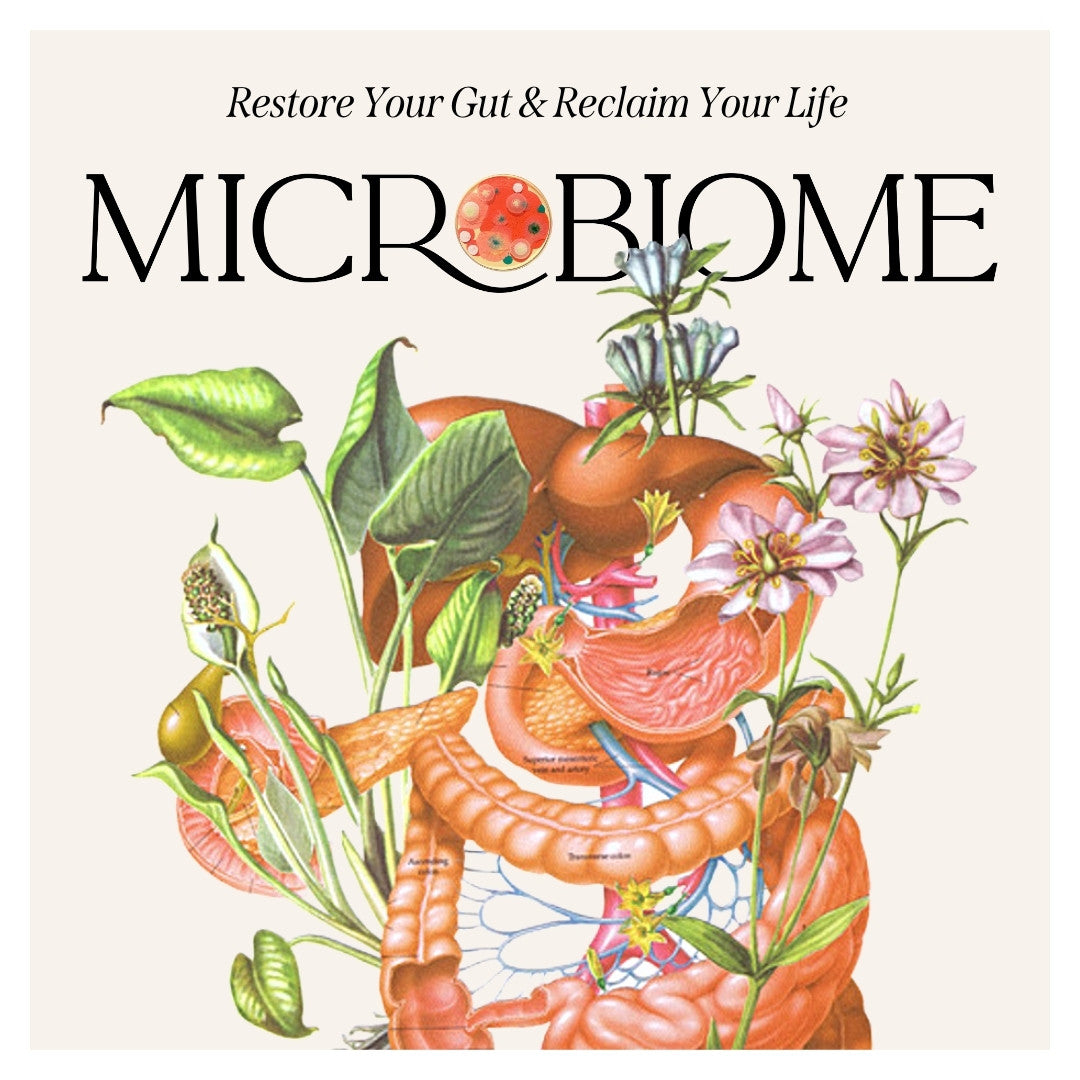

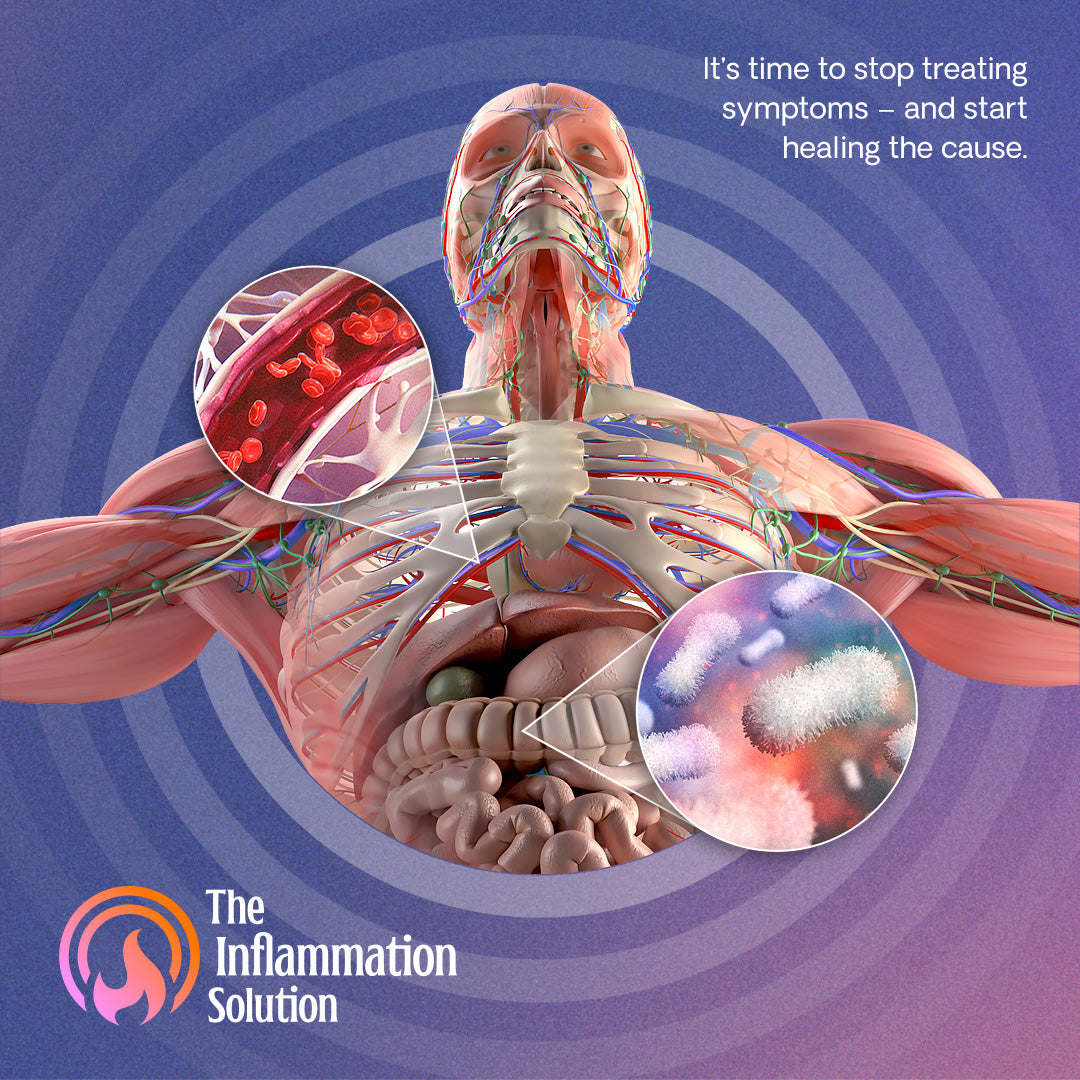
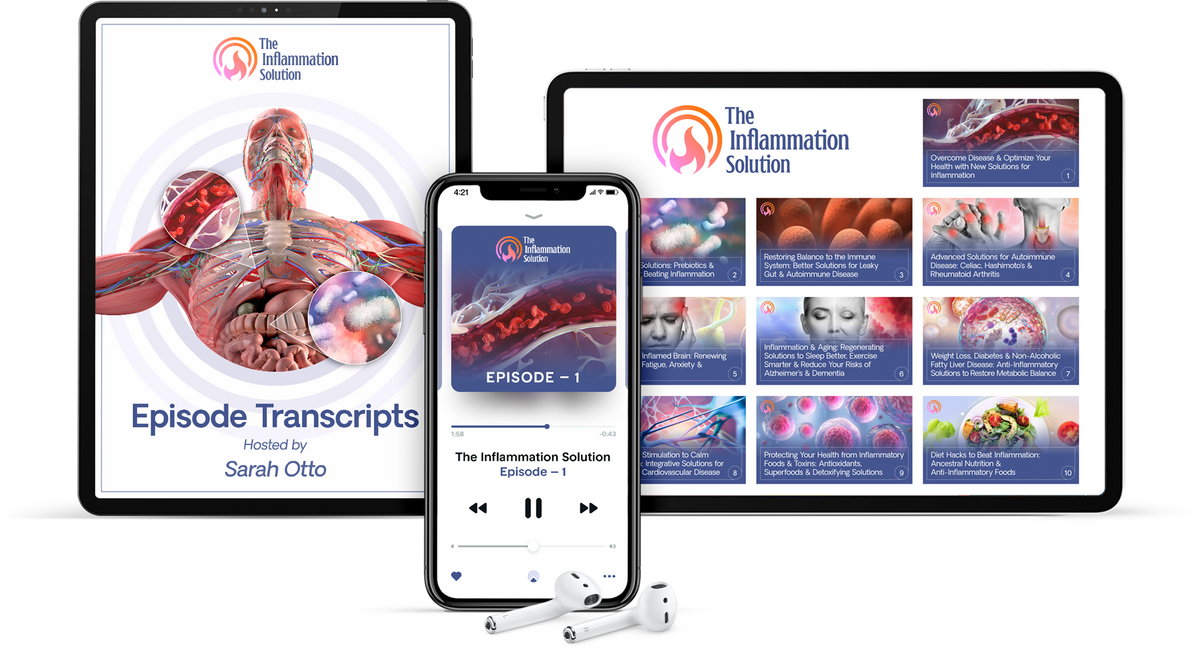
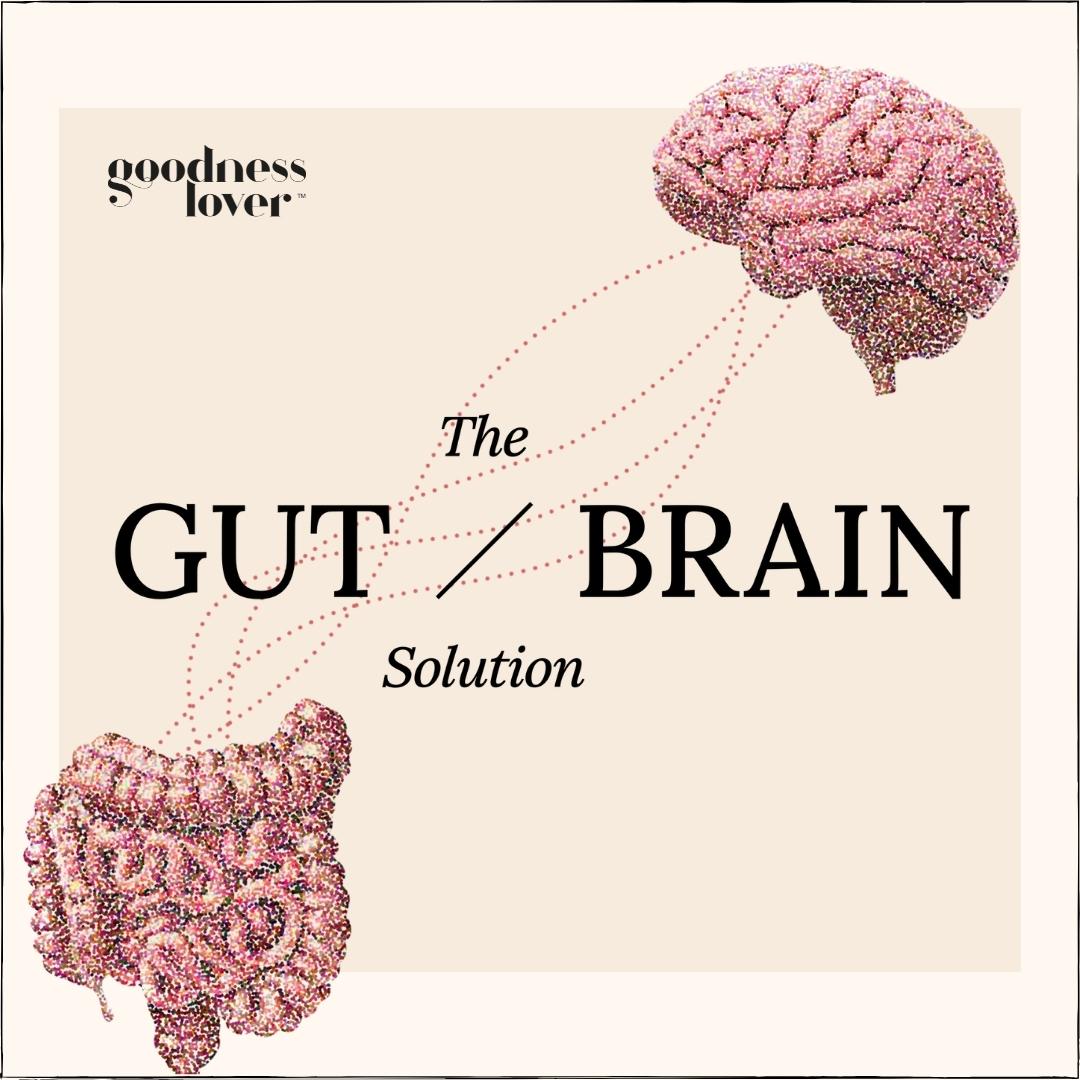

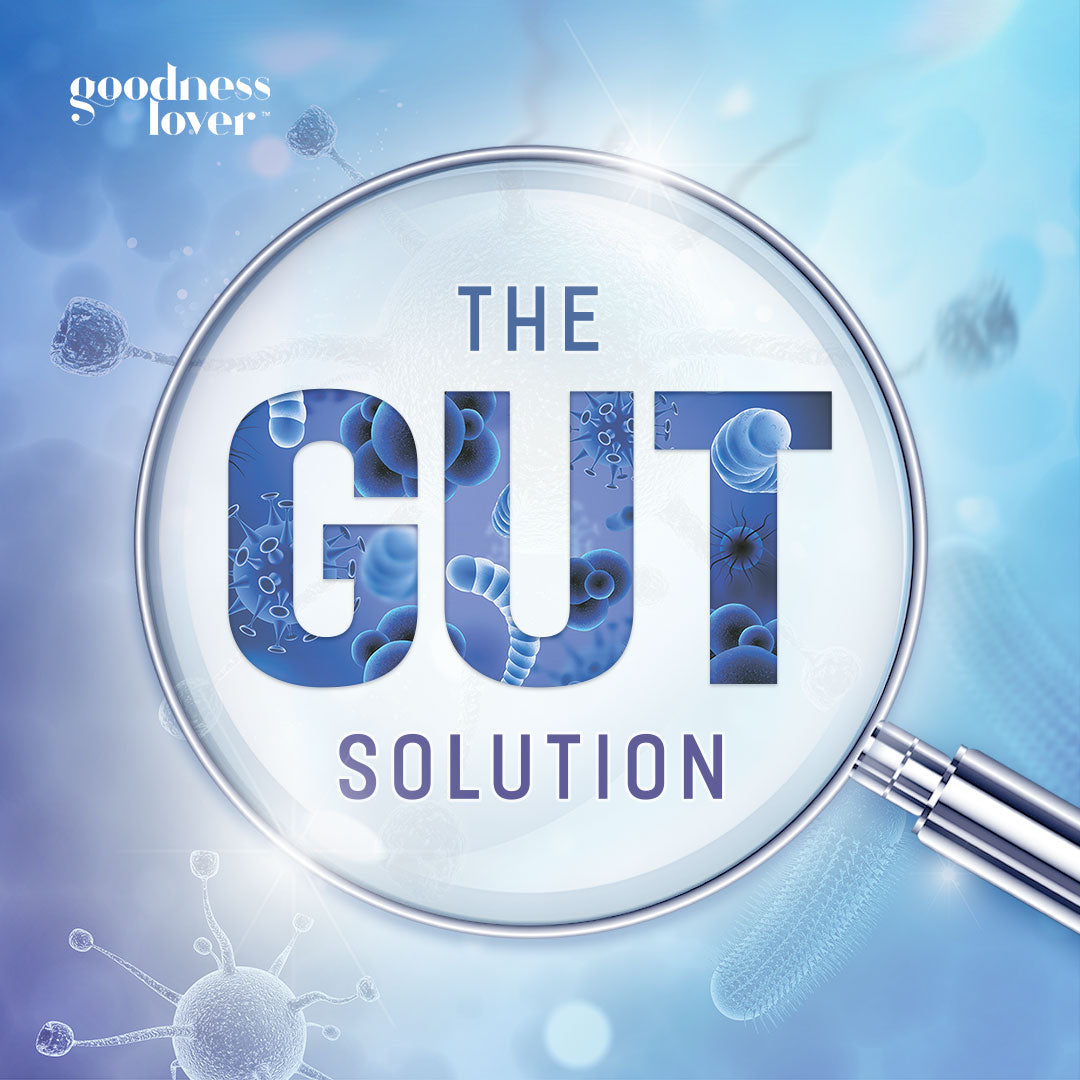
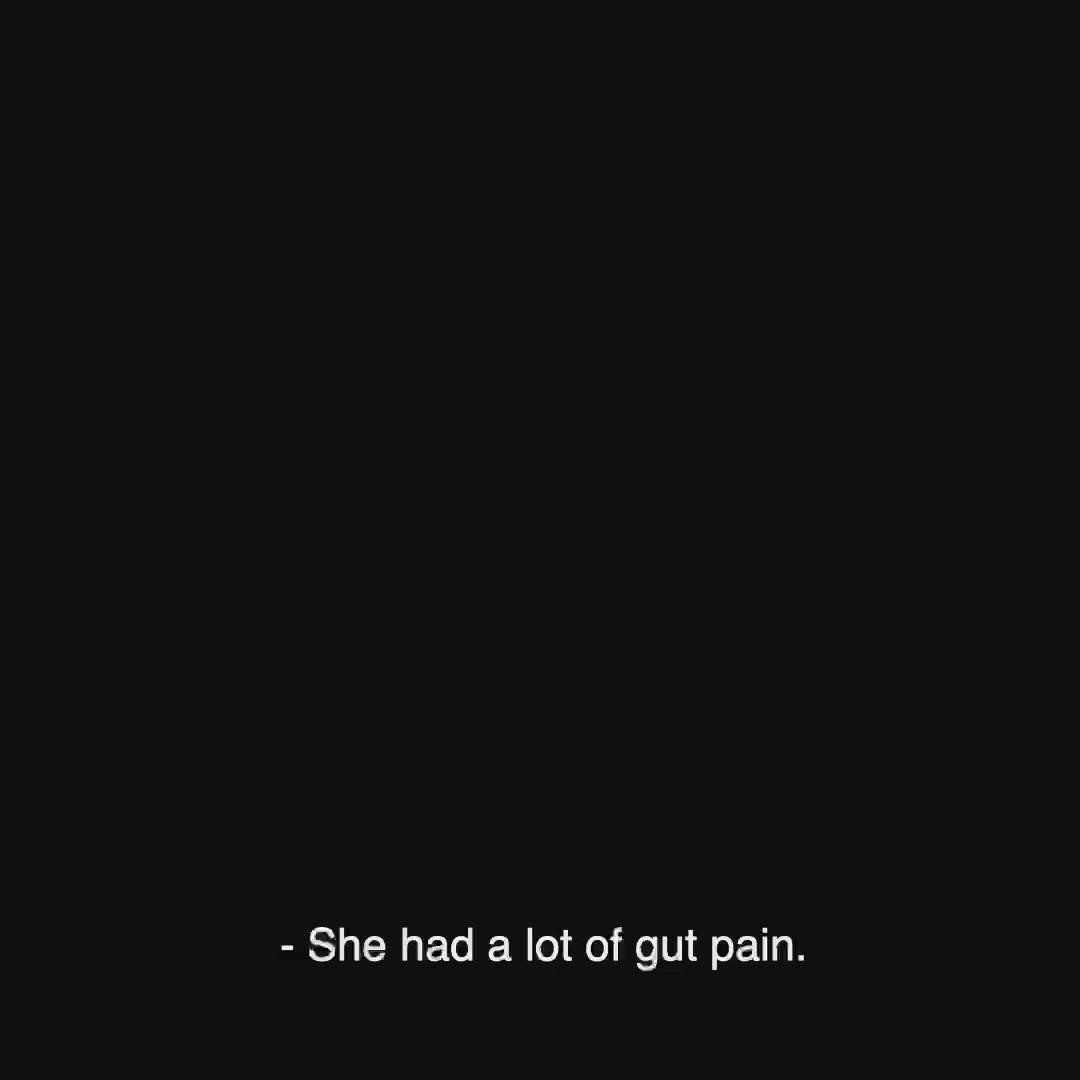
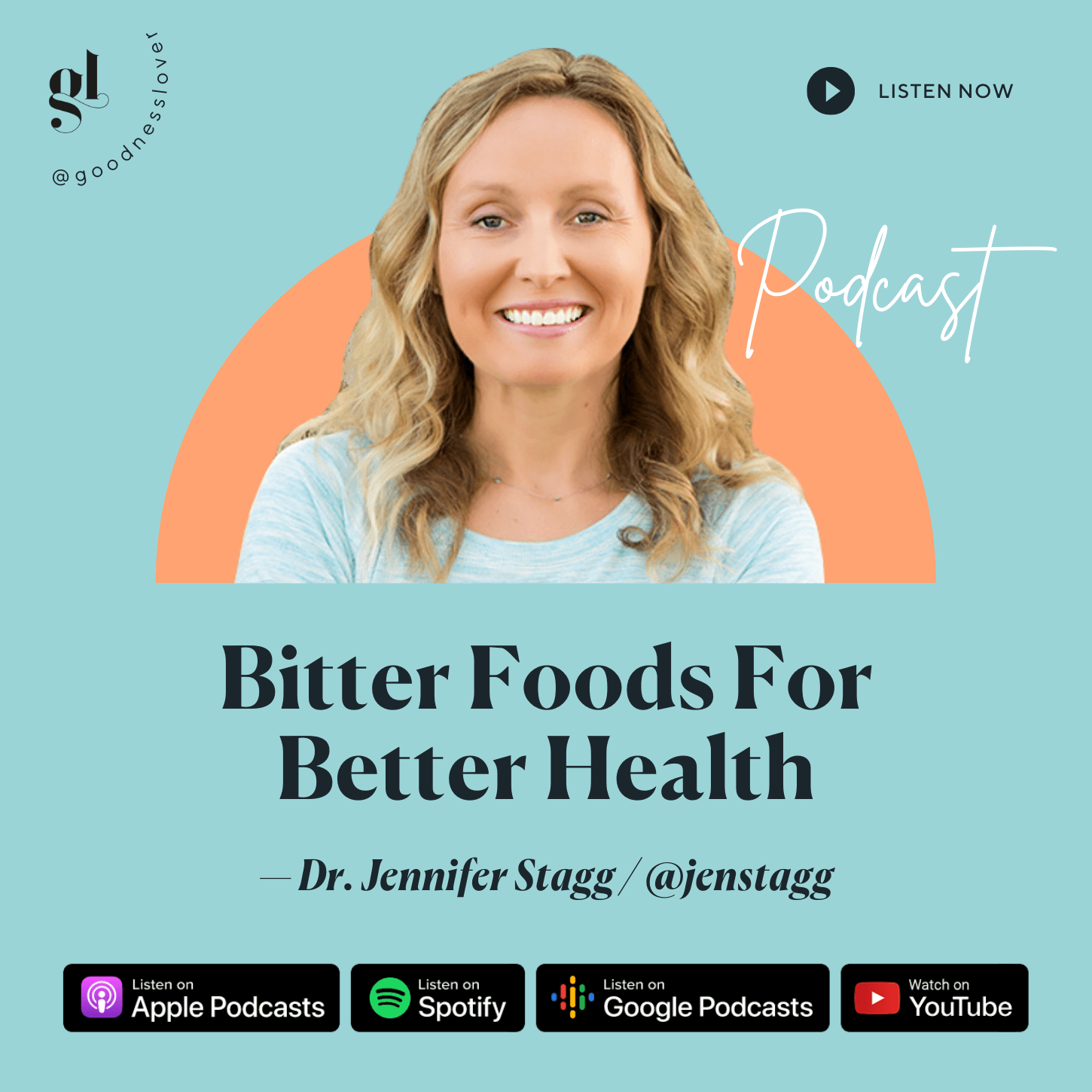
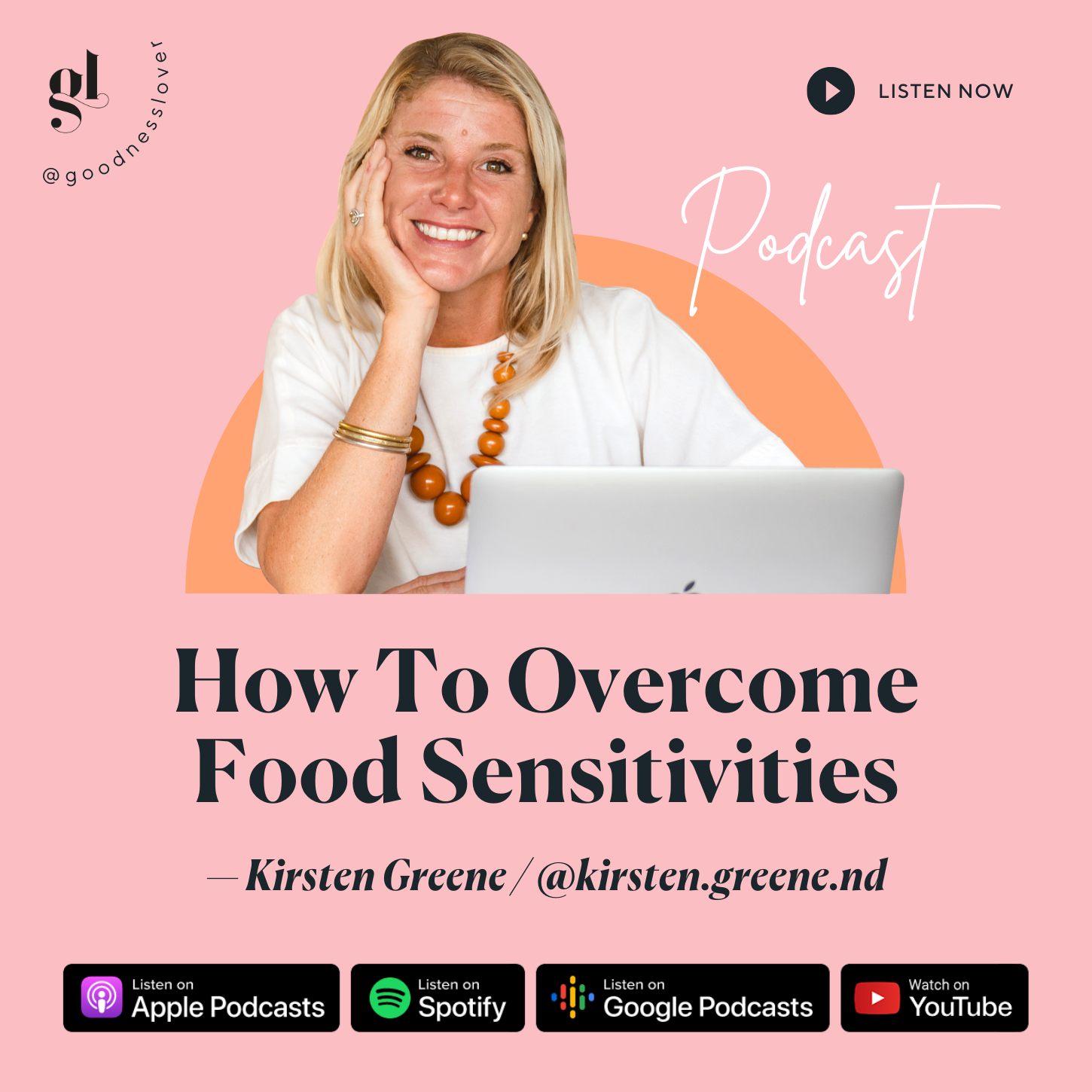

What Do You Think? Comment Below: